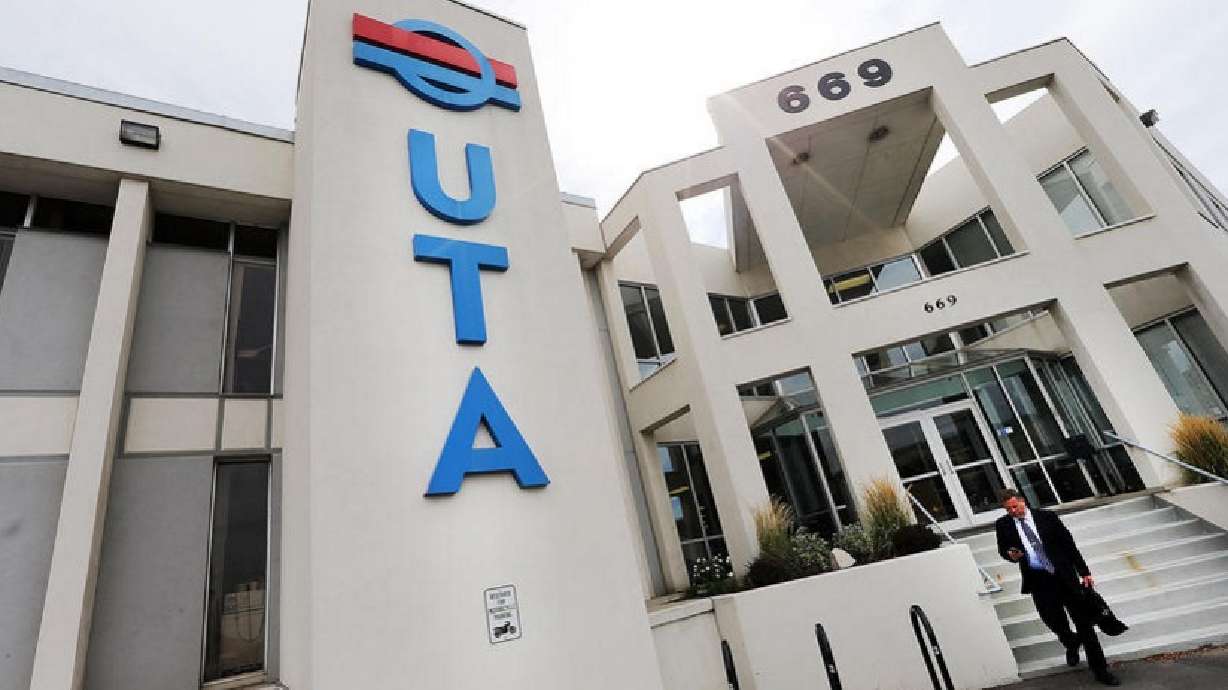Estimated read time: 3-4 minutes
This archived news story is available only for your personal, non-commercial use. Information in the story may be outdated or superseded by additional information. Reading or replaying the story in its archived form does not constitute a republication of the story.
SALT LAKE CITY — Utah Transit Authority interim boss Steve Meyer told lawmakers Wednesday the agency is working hard to make the changes called for in a controversial bill passed last session, including replacing the agency's leadership.
"We're going to continue to build trust in the organization and provide big-picture leadership," Meyer told members of the Legislature's Transportation Interim Committee.
Under the legislation passed during the 2018 session, UTA's 16-member board of trustees and top positions are being replaced by a new, three-member management team that will be appointed by Gov. Gary Herbert.
Former UTA President and CEO Jerry Benson was fired by the board after the law took effect, a decision that drew criticism because he received a severance package worth well over $200,000 by not quitting.
Meyer was named as interim executive director, a position that will answer to the management team once it is in place. He said he hopes to see the team brought in sooner, although the governor has until Nov. 1 to make the appointments.
What didn't come up during the discussion, which went into detail about UTA's $2 billion debt, was a provision in the bill to change UTA's name to Transit District of Utah.
Last month, lawmakers announced they'd seek to repeal the name change in the face of public pressure over UTA claims it would cost taxpayers $50 million to make the switch.
"We think it's resolved. There really wasn't anything to say about it," Meyer said to reporters after presenting to the committee. He said UTA is on board with the legislation at this point.
"The bill is the law now. So we're moving forward," he said. "We're working on all elements of that to meet the requirements. We've accepted that. There's a lot of benefits to it, for the public."
That includes additional revenues for transit made possible by the bill, including a 0.25 sales tax increase in Salt Lake County likely to take effect in October, following Tuesday's approval by the Draper and Sandy city councils.
But that alone won't be enough money to fund some of the bigger projects ahead for the agency, such as expanding FrontRunner service and replacing diesel locomotives with electric trains, UTA's government relations director, Matt Sibul, testified.
Sibul said UTA expects the federal government will continue to provide funding for transit projects. The agency will compete with other transit districts in Utah for money being made available for the first time by the state.
Related story:
Meyer said UTA's debt is the result of the accelerated construction of $3.45 billion in rail projects that were completed in 2015. Besides $2 billion in bonding, the agency received about $1.4 billion in federal funds to pay for the projects.
Rep. Kay Christofferson, R-Lehi, the committee's House chairman, said the debt is a concern. He said it will take until 2042 to pay off what's currently owed and that interest payments alone cost $85 million in 2016.
UTA's 2018 budget is just over $400 million and includes almost $120 million for debt service, the single biggest expense. In contrast, $97.5 million is being spent on bus service, $49 million on light rail and $27.4 million on commuter rail.
The legislative task force that looked at options for dealing with the long-troubled agency last year rejected a state takeover of UTA because that would have meant assuming the $2 billion debt and hurting the state's bond rating.
Instead, the governance of the agency was restructured to give the governor the power to fire the top bosses and the Utah Attorney General's office will take over handling legal matters.
UTA has been the subject of a number of critical legislative audits over the years, including for conflict of interest issues surrounding transit development deals around rail stations.
Those deals are being investigated by federal authorities. Last year, UTA signed a nonprosecution agreement with the U.S. Attorney's Office in exchange for cooperating in the investigation and accepting federal monitoring.










